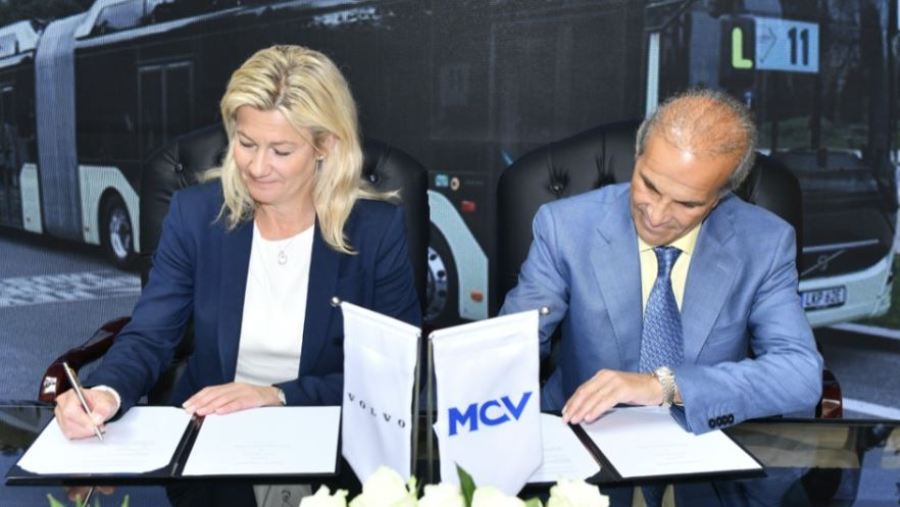Volvo Buses has signed an agreement with MCV for the manufacture of bodies for the Volvo 7900 Electric and Volvo 7900 Electric Artic, and later for an electric bus for intercity traffic. Production is expected to start in 2024 and the first electric buses with chassis from Volvo and bodies from MCV will be on the market in 2025.
The agreement with MCV is the next step in Volvo Buses’ new business model in Europe. Earlier, Volvo Buses had signed letters of intent with MCV for the manufacture of bodies for city and intercity buses, and with Sunsundegui for tourist buses.
“By completing the agreement with MCV, they can now manufacture our bodies so that we can offer customers in Europe a complete range of Volvo’s city and intercity buses in the premium segment. MCV is a perfect partner with the skills and capacity to meet the high demands of our European customers,” says Dan Pettersson, Senior Vice President at Volvo Buses.
During autumn, Volvo Buses will continue planning together with MCV with the aim of starting production in 2024. Customers should be able to place orders in the last quarter of 2023, which means deliveries should be possible in the first quarter of 2025.
“Our business model means that we have close collaboration with some of the world’s leading bodybuilders, which allows us to combine our expertise in each area. It improves our ability to develop and adapt solutions to meet customers’ needs now and into the future,” says Dan Pettersson.
Under the new business model in Europe and the agreement with MCV, Volvo Buses will continue to be the point of contact for customers regarding spare parts and services, both for new offers and for customers who already have Volvo buses in their fleet.
Facts – About MCV
MCV (Manufacturing Commercial Vehicles) was established in 1994. Its global headquarters is located in Cairo, Egypt, and it supplies commercial vehicles globally to markets including Europe, Asia, Australia and Africa. MCV has a production capacity of 6,000 buses per year.

